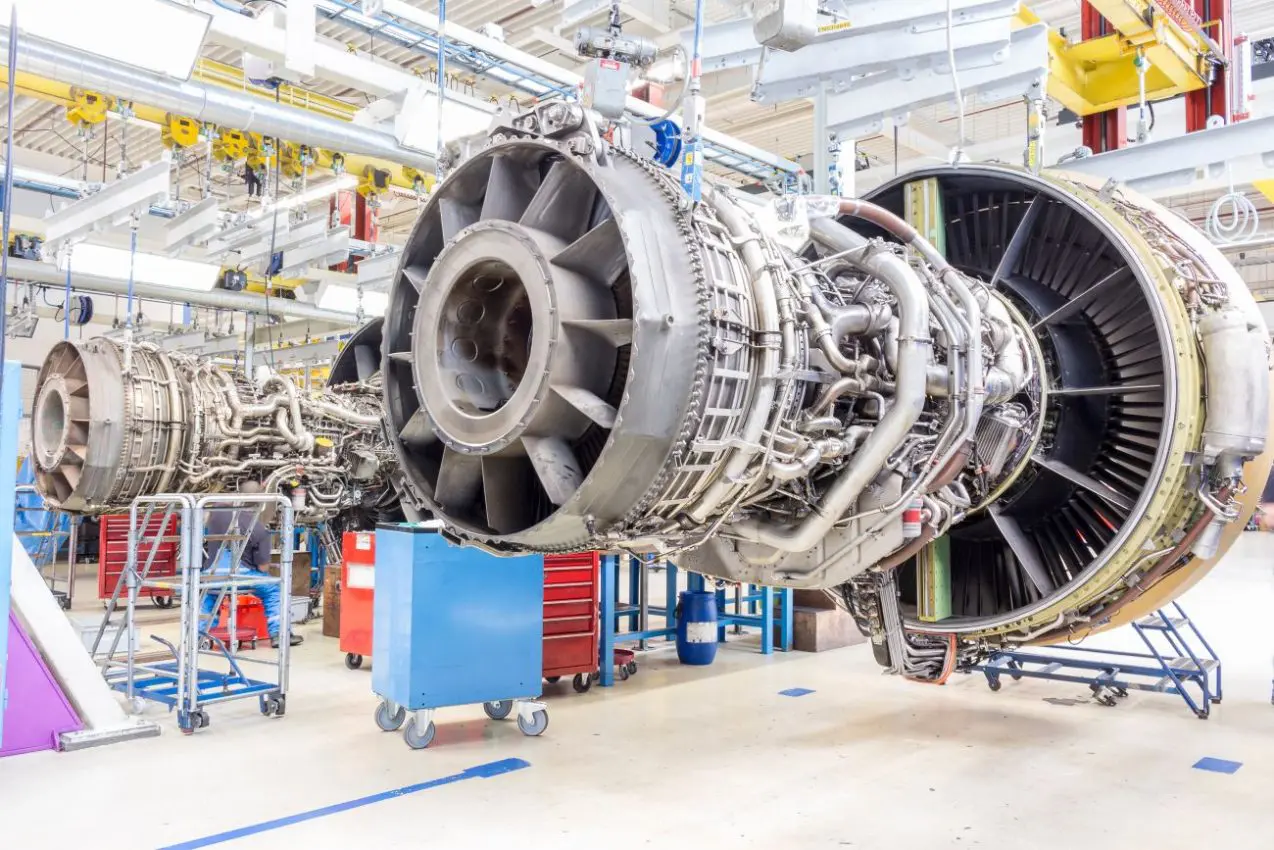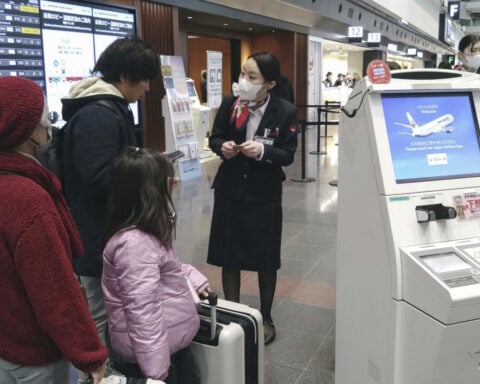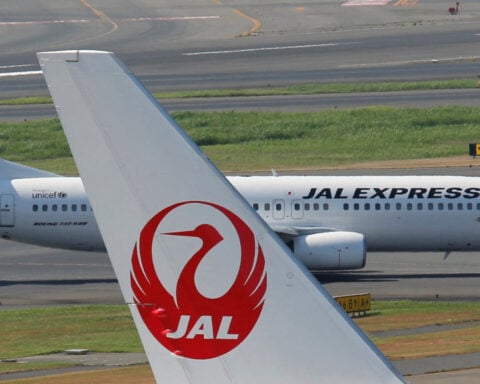A routine inspection by engineers at an aircraft maintenance facility in Lisbon this spring uncovered an audacious fraud that has sent shockwaves through the aviation industry. Workers noticed suspicious signs of wear on a replacement part for a CFM56 engine, the world’s most widely used jet engine model.
The part’s paperwork identified it as brand new, but further scrutiny by the engineers revealed the documents had been forged. Their discovery led engine makers Safran and GE to uncover that thousands of counterfeit parts with fabricated certificates have entered the global supply chain through a single obscure distributor based in London called AOG Technics Ltd.
In total, bogus parts linked to AOG have turned up on 126 engines so far, affecting major U.S. carriers and over a half dozen international airlines. While no emergencies have been reported, the ease of the widescale deception exposed glaring vulnerabilities in a system built on trust and voluntary oversight.
Industry veterans say the scandal shows how the decades-old problem of unapproved parts continues to threaten aviation safety due to limited regulation of distributors specifically.
“It’s a bit strange that a phantom company can be allowed to supply spare parts with false certification documents,” said Safran CEO Olivier Andries. He noted it remains unclear how widely the suspect parts have proliferated.
The CFM56 engine equips over half of the global narrowbody fleet, meaning fabricated components from AOG potentially contaminated thousands of jets worldwide. New discoveries crop up weekly as airlines urgently scour their records.
“Wherever there’s money, there’s fraud,” said parts distributor Tim Zemanovic. While regulations tightly control airlines and manufacturers, middlemen like AOG face little formal oversight despite handling massive volumes of parts.
Founded just 8 years ago, AOG infiltrated the clubby world of aviation parts brokers by faking industry credentials. Its website boasted of global reach and quality certifications, but was actually run by one young entrepreneur, Jose Zamora, from a London office rental space.
Zamora allegedly pulled off the scheme by forging airworthiness records to sell used or damaged engine components as new. In some cases, AOG charged huge markups on the black market parts according to legal filings. Forged paperwork dating back to 2018 suggests the con went undetected for years.
The ease of penetration has forced deep self-reflection in an industry that prides itself on safety. While no single weak link enabled the deception, limited distributor oversight and reliance on paper records left the system vulnerable.
“You need to know your supply chain is reputable,” said airline group IATA’s Willie Walsh. But ensuring “seamless documentation” across thousands of vendors is daunting and costly.
The aviation sector has grappled with unapproved parts challenges for decades despite criminal convictions in the 1990s. Even a deadly 1989 plane crash was tied to counterfeits.
“It’s the same old scheme,” said former Inspector General Mary Schiavo, who led many of those probes. She argues the system remains prone to exploitation today.
Now the race is on to contain the fallout from AOG’s alleged fraud. But with supply chain complexities and paper-based compliance, suspicious parts could be installed worldwide. Engine makers worry some airlines or repair shops may overlook needed inspections.
The financial toll is also mounting. Each affected engine costs around $300,000 to disassemble and verify. Beyond compromised safety, unapproved parts cast doubt over the entire compliance model — one held together more by trust than regulation.
Some distributors now argue it’s time for tighter oversight of their industry. While ongoing reviews and potential legal action aim to hold AOG accountable, many say aviation’s oversight gaps need addressing to prevent similar schemes.
According to federal officials, the onus remains on maintenance firms and airlines to guarantee part legitimacy, but their resources are limited. Voluntary programs also aim to ensure distributors meet standards, but proof of compliance often relies on trust.
Clearly, trust was egregiously betrayed in AOG’s alleged years-long deception. However, the fact that a sole obscure broker could infiltrate aviation’s heavily regulated ecosystem with such impunity shows the system lacks adequate safeguards.
This scandal is spurring a reckoning on how to fortify supply chain oversight. While the industry’s priority is assessing the damage and protecting safety, focus now turns to closing loopholes that allowed an invisible threat to penetrate the global aviation system.
The aviation industry has faced challenges with unapproved and counterfeit parts for decades, despite past criminal convictions and fatal accidents linked to knockoffs.
In the late 1980s and early 1990s, a surge of bogus parts triggered alarms. As the U.S. Transportation Department Inspector General at the time, Mary Schiavo led probes that brought around 120 convictions related to counterfeit aircraft components.
“If it is a part of an airplane, it could be bogus,” Schiavo told Congress in 1995, arguing the industry was saturated with suspect parts. She also accused the FAA of downplaying risks from fake components.
In September 1989, a Partnair flight from Norway crashed into the sea near Denmark, killing all 55 onboard. Investigators later determined counterfeit bolts and brackets had caused the tail section to violently detach inflight due to vibrations.
Schiavo said the recent AOG scandal proves vulnerabilities remain three decades later. “It’s the same old scheme,” she asserted.
While regulations tightly control manufacturing and maintenance, distributors of aircraft parts like AOG operate with little formal oversight. Some argue it's time to rethink that light touch.
GA Telesis, a major parts distributor, wants Congressional hearings on unapproved parts and legislation imposing stricter regulation on its industry. It spends heavily on documentation and inspections to ensure part legitimacy.
But verifying paperwork across thousands of transactions with smaller distributors and brokers on an honor system remains challenging. Critics say middlemen with lax standards can jeopardize overall supply chain integrity, as the AOG case proved.
Voluntary FAA programs aim to boost distributor accountability, allowing companies to be accredited by approved auditors. However, experts say trust is still required that all players comply responsibly without mandated oversight.
Clearly, trust broke down with AOG's alleged multi-year deception. Some observers say relying on voluntary participation leaves the system prone to such exploitation or mistakes.
With growing calls to reassess parts distributor oversight, regulators face pressure to mandate tighter controls. However, the complex logistics of tracking vast volumes of components will challenge any new regulatory approach.
The AOG scandal highlighted one systemic weakness - reliance on paper airworthiness records. Experts say digitizing documentation could help strengthen part traceability.Despite aviation's high-tech nature, paper certificates remain the standard for proving parts' origins and maintenance history. Forged signatures on such records allowed AOG's alleged scheme.
Switching to secure digital ledgers could eliminate falsified paperwork. Blockchain-based systems are one solution being explored to cryptographically validate and permanently log records across the supply chain.
However, digitization faces considerable practical hurdles, including aligning global standards. The volume of existing records makes comprehensively backloading difficult as well.
But supporters say the scale of the AOG deception demonstrates the need to modernize dated paper systems. Along with tighter oversight, they believe digital documentation is essential to fortify aviation part supply chains.
While no AOG parts have yet caused in-flight emergencies, the implications if they did lead to a crash could be far-reaching. Safety experts say extensive scenario planning helps assess and contain even remote risks. Grappling with hypothetical worst cases allows developing responses and realizing overlooked vulnerabilities.
If a plane went down due to an AOG part, investigators would trace the rogue component to determine how it evaded detection. Litigation over liability would likely follow regarding AOG's customers and potentially auditors or regulators.
The resulting scrutiny could pressure the FAA towards tighter distributor oversight and documentation rules. Public concerns over lax standards may necessitate demonstrating enhanced diligence.
Though extreme, soberly gaming out such stark scenarios directs attention to remediating deficiencies. It compels asking difficult "what if" questions to reinforce defenses.
While the details would be specific to any incident, the AOG case clearly exposed underlying flaws demanding attention before disaster strikes. Waiting for tragedy to spur reform is a gamble the industry no longer wants to take.
As airlines urgently inspect engines for AOG parts, one certain impact is rising maintenance costs. Engine removals, shop visits and verification requirements are proving expensive. Each CFM56 engine affected costs approximately $300,000 for full inspection, the Wall Street Journal reported.
With over 2,100 affected engines already identified, the overall pricetag could reach hundreds of millions in repairs and downtime. And more bogus part finds are likely as record reviews continue.
Airlines grappling with parts reliability fears now face squeezed bottom lines too. The costs promise to mount the longer inspections drag on. And with jets out of service awaiting engine checks, the revenue impacts of delayed or cancelled flights from grounded aircraft could sting as well.
Some analysts say inspection urgency may strain the capacity of engine shops tasked with unprecedented verifications. This bottleneck could delay aircraft and parts being returned to service.
Between compromised safety from counterfeits and inflated costs for airlines, the damages from the AOG deception keep growing. The true financial toll may only be clear retrospectively once the dust settles.

 Estonian government to meet as investigators probe interruption of undersea cable
Estonian government to meet as investigators probe interruption of undersea cable
 AI is a game changer for students with disabilities. Schools are still learning to harness it
AI is a game changer for students with disabilities. Schools are still learning to harness it
 Flooding took away the love of his life after 35 years without a day spent apart
Flooding took away the love of his life after 35 years without a day spent apart
 Pakistan military court sentences 60 civilians up to 10 years in prison
Pakistan military court sentences 60 civilians up to 10 years in prison
 Lebanon hopes for neighbourly relations in first message to new Syria government
Lebanon hopes for neighbourly relations in first message to new Syria government
 Futures lower in holiday-thinned trading
Futures lower in holiday-thinned trading
 Indian economy to grow at around 6.5% in FY25, government says
Indian economy to grow at around 6.5% in FY25, government says
 KEEPING THE SPIRIT ALIVE: Man’s family shows off century-old Christmas tradition
KEEPING THE SPIRIT ALIVE: Man’s family shows off century-old Christmas tradition
 What is known about a plane crash in Kazakhstan that killed 38 of 67 people on board
What is known about a plane crash in Kazakhstan that killed 38 of 67 people on board
 These undersea tunnels connect remote islands halfway between Iceland and Scotland
These undersea tunnels connect remote islands halfway between Iceland and Scotland
 Fake Jet Engine parts
Fake Jet Engine parts







